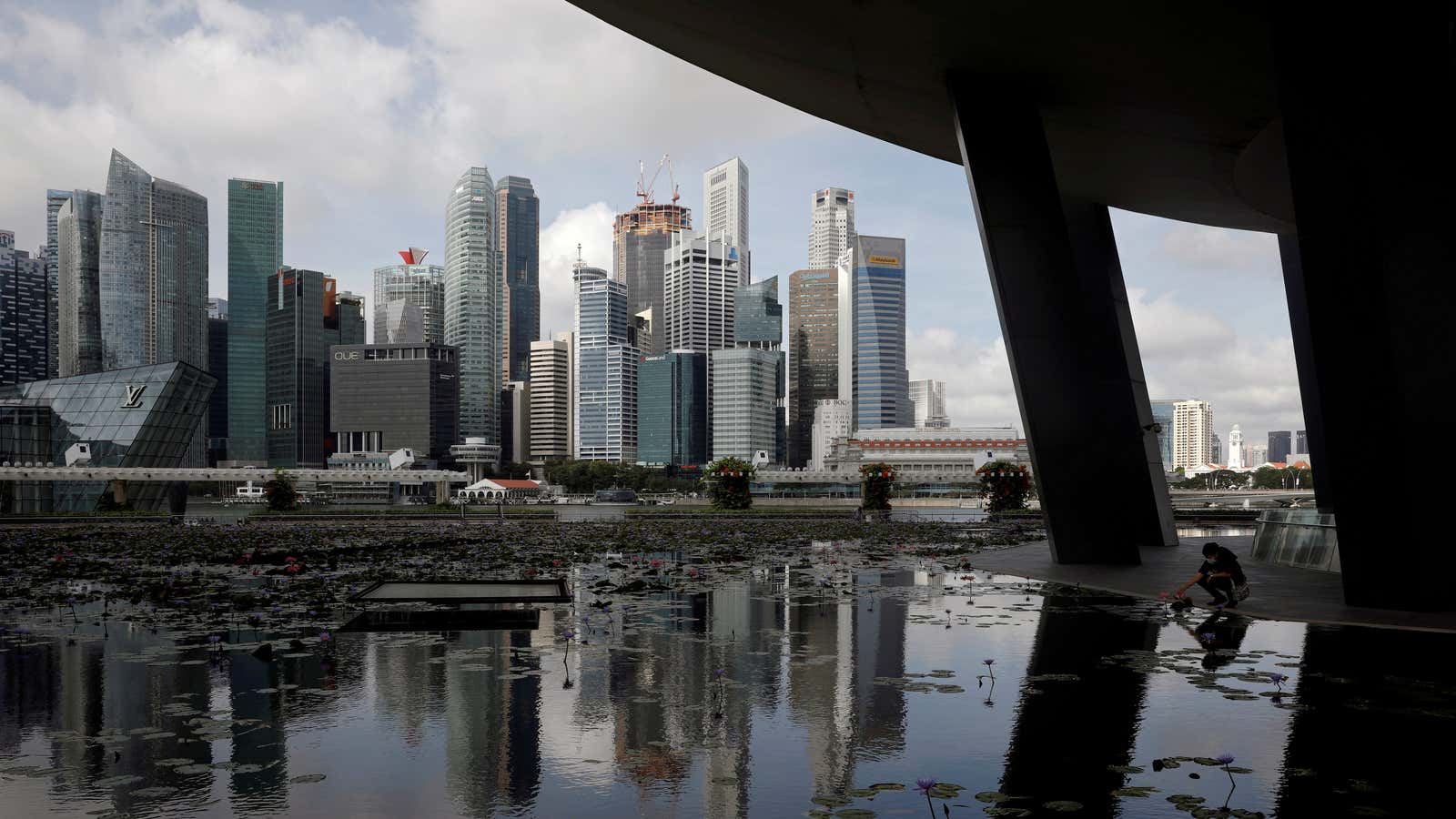Hong Kong and Singapore, Asia’s two global finance hubs are eager to attract foreign capital and style themselves as cosmopolitan gateways to the world. And they are equally determined to root out foreign interference in civil society in a bid to shore up national security.
Though the two cities are situated in different political contexts, their respective laws designed to target foreign meddling share similarities in their vagueness, expansiveness, and potential for abuse.
Two cities, two vague laws
In Hong Kong, authorities empowered by the Beijing-imposed national security law have already arrested, prosecuted, and detained numerous of activists, journalists, and businesspeople over alleged instances of foreign collusion.
Now, Singapore has tabled a new law—the Foreign Interference (Countermeasures) Bill (pdf) — that would severely restrict or in some cases criminalize acts like communicating information on behalf of a “foreign principal” without declaring it, and receiving undisclosed funding from a “foreign principal.” The proposed law would also empower authorities to issue take-down orders to remove any content deemed to be part of “hostile information campaigns“; block content and social media accounts; and ban apps. The law is expected to undergo its final readings at the next parliamentary seating, and its passage is all but guaranteed.
Like Hong Kong’s national security law, definitions in Singapore’s law are vague. It’s not clear, for example, what kind of information will be deemed hostile because it’s “prejudicial to the security of Singapore” or “diminishes…public confidence” in the Singaporean government. Nor is it clear what the threshold is for determining someone to be acting “on behalf of a foreign principal.”
“It’s this wide berth for interpretation with less clear mechanisms for oversight and restraint that’s most parallel” with Hong Kong’s national security law, said Chong Ja Ian, a Singapore-based political scientist.
In a statement, the Singaporean government has said that its residents and citizens “have the right to discuss politics,” and assured foreign media that critical reportage would be protected. But as in Hong Kong, whose government has also assured citizens and businesses that no “legitimate rights and freedoms” have been curtailed, none of those guarantees are written in law.
“Like with the national security law, there have been many assurances given to businesses in Singapore, but it’s not clear when the authorities can change their minds,” said Chong.
“Moving away from global openness”
Certainly, Singapore has legitimate concerns about foreign interference. A high-profile case of a Singaporean who was caught spying for China in the US, for example, rekindled fears that foreign countries were exploiting Singapore’s openness and strategic location to gather intelligence and recruit spies. And in 2017, Singapore expelled a pro-Beijing academic for acting as a foreign agent.
By contrast, said Chong, examples of foreign interference in Hong Kong pointed to by authorities there have been “quite weak.” Indeed, just this week, Hong Kong government officials and a state-owned propaganda outlet have insinuated or outright accused the city’s largest journalist union of foreign collusion, suggesting it has received foreign money and is in cahoots with foreign outlets like the BBC to “smear” China with negative coverage.
The fact that Asia’s two premier global financial hubs are now separately placing restrictions on international ties and exchanges perhaps hints at a new era in which globalization and the free flow of information are now regarded with more wariness and skepticism.
“I guess, in some ways, this is reflective of a world that’s moving away from the global openness, deregulation… that we’ve been used to over the past 30 years,” said Chong.
